Bahrain Ministry of Industry: Economic & Industrial Development of Bahrain
Dr. Hassan A. Fakhro, Bahrain Minister of Industry & Trade
How much easier it is to be critical than correct (Disaeli). I would ask those who would criticize Bahrain, to look to their own countries
Interview with Dr. Hassan A. Fakhro, Bahrain Minister of Industry & Trade
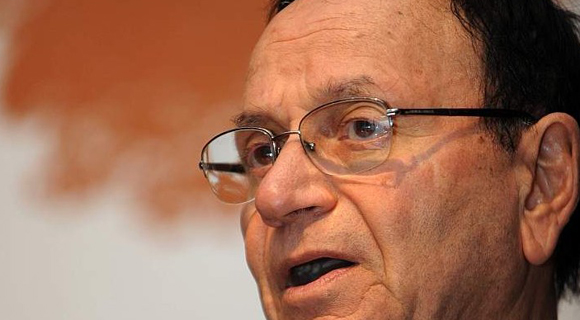
What does the future hold for Bahrain ?
First let me say that Bahrain is a democracy, with a bi-cameral Parliament and with a number of political parties, operating under a Constitutional Monarchy with a Constitution backed by the people as a result of the National Action Charter.
Since embarking on the process of constitutional, economic and
Vision 2030 goals are demanding, but most defiantly achievable, and in order to achieve those goals we have a road map in the form of the National Economic Strategy (NES), which is intended to get us to where we want to be.
social reforms some 10 years ago, a significant amount of progress has been achieved, however some political parties would like to see that progress enhanced at all levels, and accordingly had embarked on, what were at first peaceful demonstrations, to draw attention to their demands, and to which His Majesty King Hamad Al-Khalifa, had responded, with a call for an immediate and genuine dialogue.
It is with much regret that what started as being a peaceful expression of views, actions which are fully supported by the Bahrain Constitution, rapidly deteriorated as the peaceful demonstrations were hijacked by certain groups of demonstrators into violent and criminal acts perpetrated against the State following directions from foreign powers, with a view to inciting sectarian tension and bringing chaos to the economy and society in general. 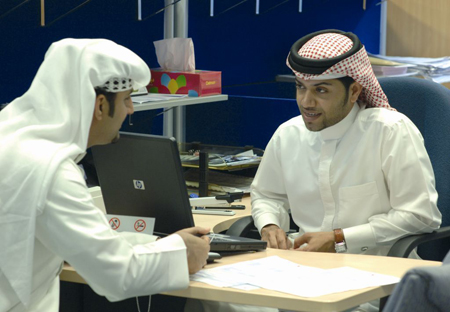
The swift action taken by the His Majesty in declaring a State of Safety, in order to restore calm, and the invitation to the GCC forces to assist in protecting Bahrain’s borders and sensitive economic installations and to suppress violent demonstrations, in accordance with the GCC agreement, in thwarting any aggression by foreign elements, has not only brought peace, confidence and security back to the nation, but has also somehow invigorated all sections of society and strengthened a feeling of solidarity amongst the people, and against those few individuals and groups who attempted to overthrow the legitimate rule of the nation.
His Majesty the King has issued a Royal Decree which will end the State of Safety from June 1st 2011, and I have no doubt at all that what will ensue from thereon in , is getting back to normal PLUS. Our economy is already back on track, although there is still someway to go in terms of rejuvenating the tourism and associated retail sectors, which has quite naturally been effected by the events of the past few months. Nevertheless as various foreign Embassies downplay their travel advisories, and the Bahrain Saudi Causeway traffic gets back to normal, and hopefully our Formula One event gets re-scheduled, I would expect that we will close out the year on a much brighter note in this regard.
In all other respects, the economy is robust; the banking sector is largely unaffected, we are issuing new commercial and industrial licenses by the day, and in general I can say that there is a sense of optimism for a bright future, in which the Government’s economic development plans under Visions 2030, will play a vital role in stimulating growth and achieving the aspirations of all Bahrainis.
How do you respond to the critics of Bahrain ?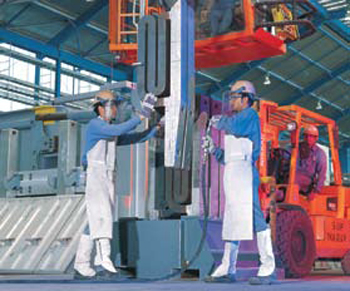
How much easier it is to be critical than correct (Disaeli). I would ask those who would criticize Bahrain, to look to their own countries before ruminating on the situation in Bahrain, and without having full factual knowledge of our present history and the events which have occurred since February of this year.
Bahrain, as a developing country, has an enviable record in promoting the education and welfare of its people; we have achieved the highest literacy rate in the region, our people have access to free education, free healthcare and a social security net which provide unemployment benefit.
We recognize that there are those who are challenged either educationally or in some other way, there are under-achievers and social drop-outs, who for one reason or another are unable or unwilling to participate in the economy, and for those the Government has embarked on numerous assistance programs.
However, on the other hand we have created a high-value added banking and financial services industry in which Bahrainis represent over 70% of the employees. Our national flagship industries are staffed primarily by Bahrainis, and we have embarked on labor reforms, that promote the concept of the Bahraini as the employee of choice.
Bahrain has a Gross Domestic Product Per capita of over US$ 40,000, we have the highest productivity and literacy rate in the region, and we have a fully inclusive society in which women play a leading role in public life and popular elections. In short Bahrain is a modern country, with far-sighted economic and social policies, a cosmopolitan welcoming environment, and a deep respect for the rule of law and the legitimate rights of its people.
There have been some recent statements made in the media by those who are attempting to tarnish Bahrain’s human rights record, using lies and fabrications in an attempt to derail the Kingdom from its path of development. However, I am sure that the truth will out, and that there are so many more who are aware of the real facts and know the real situation in Bahrain, that will exonerate all actions taken by the Bahrain 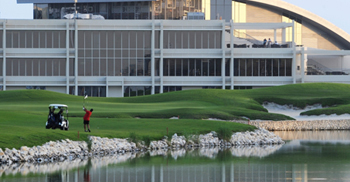 authorities to restore peace and calm against a background of action by foreign backed rioters, which resulted in those criminal elements hijacking the main arterial roads, the main business district, the occupation of the central hospital, attacks to the University and violence against expatriates and members of the police force.
authorities to restore peace and calm against a background of action by foreign backed rioters, which resulted in those criminal elements hijacking the main arterial roads, the main business district, the occupation of the central hospital, attacks to the University and violence against expatriates and members of the police force.
Perpetrators of these crimes against the State are now the subject of due legal process, but with their full human rights being protected under the Constitution; those that have had bad intentions against the nation are now known, and I would say that so are the nation’s ‘fair-weather’ friends.
What are the biggest priorities for domestic reform, in other words what are your main priorities (where would you like to see Bahrain) ?
Vision 2030 aspires to diversify and grow the economy to achieve sustainable economic development, and a doubling of the household disposable income by 2030.
The National Economic Strategy (NES) is, if you will, a roadmap to achieving this goal, it is focused on different initiatives concentrated on Education and Training, Economics, Health, and Society and under the three guiding principles of Sustainability, Competitiveness and Fairness, the aim being to transform Bahrain into a meritocracy, driven by the private sector, in which hard work reaps rewards.
I would say that in summary the main priority is to encourage new investment in order to grow employment opportunities, and to ensure that our labor force is educated and trained, in particular for those industries and services which are the target of our economic policy . In order to achieve this one critical area of importance is to enhance our existing hard and soft infrastructures, improve our attractiveness to both foreign and domestic investors, and encourage and promote existing business to achieve higher levels of productivity.
At the Ministry of Industry and Commerce (MOIC), on the industrial front, we are attempting to create higher valued added industry, which will support the provision of new higher paid employment, and at the same time take account of our relatively short supply of land, water and energy.
Bahrain is focused on moving to a knowledge base, and to achieve this by clustering industries around a number of core competencies and strategic advantages. At the Ministry our job is to try to guide industry in the right direction through a number of policy initiatives, and by establishing the right level of supporting infrastructure.
The new Bahrain International Investment Park (BIIP), within the newly formed Salman Industrial City, is one such project which the Ministry has developed to provide some 640 hectares of serviced land, providing excellent logistics, and designed to maximize clustering and the cross-fertilization of industry. 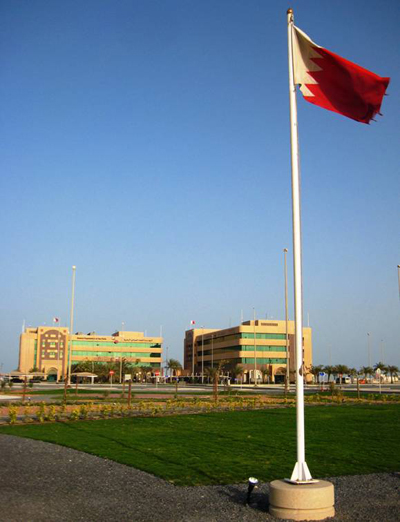
We have a number of other projects in the pipe line which are geared at maximizing the impact of our new industrial policy and providing new value propositions for both domestic and foreign investors. However maximizing the availability of industrial land is a policy priority, as is a focus on the development of small and medium sized enterprises.
As regards trade policy, whilst expanding regional integration and trade is a policy objective, we are looking towards the greater Middle East, MENA region as a market for Bahrain based businesses, and projecting the Kingdom primarily as a base for this wider market.
We also look beyond the Middle East, by means of the Free Trade Agreement (FTA) which we have with the United States, to attracting investment in Bahrain to take advantage of the potential which the FTA has for Bahrain businesses in terms of the vast U.S market. I also believe that the proposed GCC FTA with the Japan and with the EU, will offer us significant benefits as a regional business centre and as a regional base for Japanese and European businesses.
On the commercial, legal and regulatory front, we are embarked on developing a new suite of commercial laws, as well a new on-line application and registration system to improve the incorporation process.
Other initiatives in the commercial area, which support the attraction of inward investment and the promotion of the our economy, include the new raft of Intellectual Property laws; development of local and regional standards and infrastructure; providing support for sme’s to develop, which in turn then provides foreign investors with a growing number of potential local partners, and in a more general sense we are working very hard to ensure that the local market remains as a clean, transparent and growing market, by putting anti-money laundering and the development of good corporate governance high on our agenda.
The Ministry, together with Mumtalakat Holding Co., and the private sector, are launching the development of the Exhibition & Conference City, and to stress the importance of this sector, which is overseen by MOIC, due to the major position which this sector holds for Bahrain.
As the provider of the industrial and commercial infrastructure, which enables businesses to enter and exit the market; as the authority responsible for Industrial Policy, Trade Policy, Standards & Metrology; Industrial Property, eCommerce, Exhibitions and Conventions, and providing gem Testing facilities, the Ministry of Industry and Commerce (MOIC) , is there to ensure that any impediments that effect the efficient functioning of the market and the development of the private sector are eliminated or minimized , to enable the Vision growth aspirations to be achieved, and to provide all of the necessary facilities, including the provision of industrial land, that is required for Bahrain to expand its manufacturing capability.
What are the opportunities for foreign investors in Bahrain ? What are the sectors you would like to see developed ?
Bahrain has a solid and growing industrial base, yet our limited natural resources of land and water, demand that we look towards higher value goods and services, and in this respect economic policy development led us to the position of considering a knowledge based-economy, clustered around key sectors of comparative advantage, in order to sustain growth for future generations.
The industrial sector is identified in the Government Vision 2030 as playing a key role, in expanding GDP and employment opportunities , and together with the commercial sector will remain the engine for economic development in the Kingdom.
I would not go into the specifics of which industries we consider to be promising, as in my view there is potential across the board, however the Ministry of Industry and Commerce (MOIC) has built a portfolio of industrial opportunities for the consideration of investors, and continues to expand on this as a means of highlighting some areas of potential interest, in aluminium and derivatives, electronics, pharmaceuticals, and foremost in the field of small and medium categories.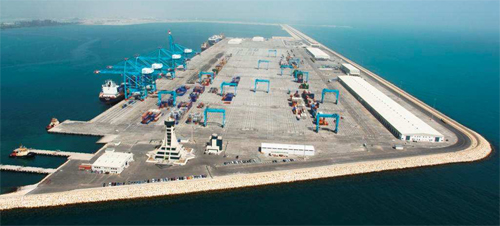
For sure our sights are firmly set on less energy intensive industries. However, the MOIC is keen on developing a wide base of manufacturing so that the economy is not reliant on any one particular industry. Efforts have been underway since the 70s to diversify, and indeed even after the discovery of oil in the 1930s Bahrain has been making efforts in this regard.
Because of the limitations which we face of land, water and energy, it is of paramount importance that we focus more on high tech industries, developing the manufacture of products higher-up the value chain will provide higher paid employment and higher export earnings from our limited resources. The Government is keen on the transformation of the economy into a knowledge-base built around certain key clusters of industries with nexus to the overall objectives of Vision 2030, and we remain confident of developing more manufacturing downstream of our major industrial outputs.
What more can be done to improve this ranking ? (Wold Bank’s Ease of Doing Business 2010 Report)
Bahrain was ranked at 28 in the 2010 World Bank Ease of Doing Business Report, but this should also be read in the context of other rankings, such as for example the Heritage Foundation Report, which ranks Bahrain as the 10th in its Economic Freedom Index, and the highest in the Middle East and North Africa (MENA) region.
How much easier it is to be critical than correct (Disaeli). I would ask those who would criticize Bahrain, to look to their own countries before ruminating on the situation in Bahrain, and without having full factual knowledge of our present history and the events which have occurred since February of this year.
The World Bank Report rankings are based on an analysis of processes and procedures which relate to a medium sized With Limited Liability (WLL) company. However in Bahrain, the most popular vehicle for establishing a business is through a Sole Proprietorship or Partnership, in which the procedures and formalities are much simpler.
In any event there is much more that Bahrain can, and is doing, in terms of improving the administrative and legal process for companies. A new raft of commercial laws is in process, which includes, a new Company Law, Competition Law, legislation to deal with secured lending, and a new Bankruptcy Law. Taken together with the Phase 2 of our eInvestor system, which will provide a whole new experience for investors by creating a virtual on-line application system, I believe that the process of entry into the market, access to financing, and exit from the market will be taken to a whole new level, and will indeed improve our overall ranking in the World Bank’s Ease of Doing Business Index.
What is your personal vision and how are you going to approach these challenges ? (Demographics)
Bahrain does have a growing population, and for sure our challenge is to ensure that those entering the job market in future years will have real prospects for gainful employment, which fully meets the aspirations established in Vision 2030 for a doubling of household income. In order to achieve this we must encourage new business development, we must encourage new investment from both foreign and domestic sources, we must encourage a growth in productivity, and we must promote the private sector by opening up new markets for their products and services.
My personal vision is fully aligned with the Vision 2030 and the approach taken by the National Economic Strategy (NES), and in which the Ministry of Industry and Commerce (MOIC) is a major participant. I see Bahrain in the future as being a prosperous, international financial and services centre, underpinned by a robust industrial sector producing high-value added outputs, and supported by a legal and administrative system which is second to none, and with the Bahraini being the employee of choice, as an educated, trained and productive contributor.
I see the role of the MOIC as being that of regulator and facilitator, we encourage, support and direct through our industrial, commercial and trade policies, but we are not directly involved in the productive processes. I would, therefore, articulate our approach to achieving Vision 2030, as orchestrating the commercial and industrial infrastructure and incentives to encourage inward investment and organic domestic growth in the sectors and clusters, where Bahrain is considered as having a competitive advantage, and expanding downstream growth, all with the objective of diversifying the Bahraini economy.
This translates into creating an enabling environment of laws and regulations, and improving customer services, so that entry into and out of the market is efficient. It involves providing industrial land and using zoning and planning parameters to regulate licensing. It involves encouraging more feedstock from the primary producers to be made available to downstream manufacturers.
It involves developing new international markets and maximizing the opportunities presented by our trade policy initiatives. It involves working within a national committee to encourage the development of SMEs. It also involves MOIC working with the Economic Development Board, Tamkeen and other Government Ministries and organizations, to provide incentives and support mechanism to encourage the private sector.
I would also point to the proposed new Economic City, which MOIC has been working on together with international advisors to produce a pre-feasibility study, as being one of the major activities which the Ministry is involved in with a view to expanding and diversifying the economy. In particular since the design brief of the proposed new Economic City would be to create a paradigm shift in terms of the economy, creating new industrial and business clusters.
How realistic are these goals ? (Vision 2030 goals)
Vision 2030 goals are demanding, but most defiantly achievable, and in order to achieve those goals we have a road map in the form of the National Economic Strategy (NES), which is intended to get us to where we want to be.
At the Ministry of Industry and Commerce (MOIC) we have been engaged over these past months in a pre-feasibility study for a new Economic City, which if approved would produce a paradigm shift for our economy and be a significant contributor to the NES in achieving the ambitions of the Vision 2030.
Indeed the additional resources which are being committed to Bahrain over the coming 10 years, through the GCC support mechanism, will undoubtedly enhance our ability to deliver on the challenges of housing and infrastructure, and help a long way in improving the overall situation of the Bahraini population and their ability to meet the challenges of the current and future job market.
We have already achieved so much in the past in diversifying the economy, Bahrain is the most diversified economy in the region, with oil contributing less than 15% to our Gross Domestic product; we have already come a long way up the ladder in terms of implementing the plans for the future, with many of the NES support initiatives already under way, but as Thomas Henry Huxley, put it, ‘the rung of a ladder was never meant to rest upon, but only to hold a man’s foot long enough to enable him to put the other somewhat higher’. I have no doubt, that our Vision 2030 goals are realistic, and I am equally confident of our ability to reach the top of our 2030 ladder.
What in your opinion are the major challenges for Bahrain over the next five years ?
In addition to what I have already stated, with regards to achieving Vision 2030 and the National Economic Strategy (NES), we will of course, during the current year, need to ensure that our economy is fully back on track after the disturbances in February, and this will require getting all sections of society singing from the same song sheet’, and there are already clear signs of this happening.
From the Ministry of Industry and Commerce (MOIC) perspective, the coming years will also witness a concerted effort to enhance our industrial infrastructure and to expand global markets through activities in the area of foreign trade negotiations. There lies a major challenge over the coming years in making sufficient industrial land available to meet the requirements of the growing industrial sector. 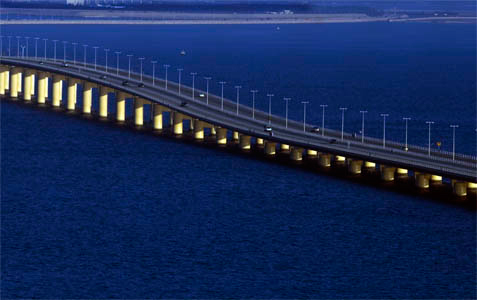
There is no denying the success of the economic reforms to this point, our main challenge now is to ensure the success of Vision 2030. In my view success is two-dimensional, one dimension is the impact on people in general, improving the general quality of their lives, the other dimension being the success of the businesses that make up the economy. Whilst these two elements are connected, there is a policy challenge in ensuring that the relative success of the two dimensions is balanced.
The focus of the MOIC is on the competitiveness of businesses and providing the private sector with the necessary infrastructure and support mechanisms to allow them to compete effectively in the international market.
At the same time our domestic policies must also be defined within the context of our regional and international obligations and commitments as a member of the GCC and the WTO. Bahrain’s membership of the GCC community underpins growing regional integration, providing opportunities for our citizens and businesses, but it also requires the adoption of common policies, which in some circumstances may not necessarily be the first policy choice for individual members of the GCC, and therefore must be handled appropriately at the domestic level.
A major part of our development strategy in the short to medium term continues to be support to the SMEs, and in particular the creation of the Bahrain Export Development Centre.
There is also a challenge to be met over the coming years for the nation in meeting energy demands in the face of dwindling domestic resources.
All these challenges both short and long term will be met with proper planning and policies set by the wise leadership and implemented by a committed government.
How would you assess an increasingly important role women are playing in the Bahraini government and society at large?
Females make up around 49.5% of the total of 568,424 Bahraini indigenous population, against a total population, including expatriates, of some 1.2 million. Our Bahraini ladies are then, if you will, a very important economic resource. The percentage of women in Bahrain’s workforce amounted to 23.5% of the total national workforce in 2001, compared to only 5% in 1971. Bahraini women today, represent 34.3% of the total workforce recorded at the Civil Service Bureau.
This percentage is the highest among the GCC countries Although female employment as a share of working age females is low, it is growing fast; from 27% in 2002 to 30% in 2009, and females occupy positions in virtual all sectors at practically all levels, and with the rights of women being firmly rooted in the year 2000 National Action Charter, which stipulated that “All citizens are equal before the law in terms of rights and duties, without discrimination amongst them because of sex.”, and provides for the promulgation of laws to defend women and protect families.
The charter also guarantees the enjoyment of the right to participate in public affairs and political rights for both men and women, especially voting right and nomination for public office. Some examples of women in high office are :
– A Bahraini woman was elected as a president of the UN General Assembly in 2006
becoming only the third woman in history to hold the post.
– On the 21st April 2004, the first Bahraini woman was appointed as a Minister (The
Minister of Health), the first in the Gulf region..
– The second Bahraini women holding the post of a Minister was appointed in 2005 as
The Minister of Social Affairs.
– The Shura (Consultative) Council includes women members
– The first Bahraini woman was appointed as the first judge in Bahrain and in the
Arabian Gulf states in 2006
– There are a number oft Bahraini female Flight Pilots which have joined the national
airline.
At the Ministry of Industry and Commerce (MOIC) we are seeing a growing percentage of new business start-ups by females, who are becoming very active in virtually all sectors of the economy.
Given this background, my assessment is that Bahrain women are playing an increasingly important role in the economy and indeed in all walks of society and public life, and will contribute significantly to the economy in the future, either by way of their employment in business, as business owners or as a part of the productive families initiatives.